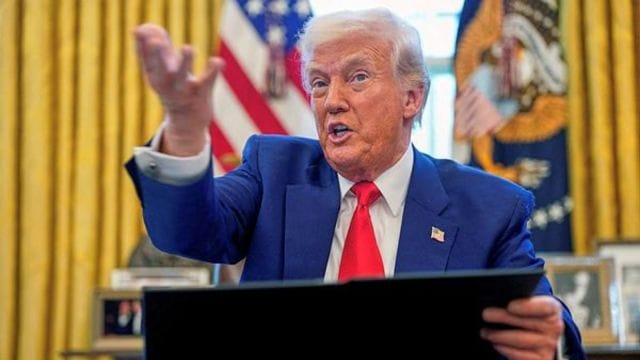President Donald Trump has come under scrutiny following a series of events that have raised allegations of insider trading and market manipulation. On April 9, 2025, just hours before announcing a 90-day suspension of certain trade tariffs, Trump posted a message on his social media platform, Truth Social, stating, “THIS IS A GREAT TIME TO BUY!!! DJT.”
The initials “DJT” correspond to the stock ticker symbol for Trump Media & Technology Group, the parent company of Truth Social.
Following Trump’s announcement, the stock market experienced a significant surge. The S&P 500 gained approximately 9.5%, recovering about $4 trillion in value. Notably, shares of Trump Media & Technology Group soared by over 22%, benefiting Trump personally, as he holds a substantial stake in the company.
These developments have prompted Democratic senators, led by Adam Schiff, to call for a congressional investigation into potential insider trading and market manipulation.
They argue that Trump’s social media post, coupled with the subsequent tariff policy reversal, raises ethical concerns about possible conflicts of interest and the misuse of non-public information.
Legal experts note that while the public post itself may not constitute insider trading, the timing and content could suggest an attempt to influence the market for personal or political gain, as per reports.
The Securities and Exchange Commission (SEC) is under pressure to examine the circumstances surrounding Trump’s actions to determine if any laws were violated.
This incident adds to a series of legal challenges involving Trump’s business dealings. In 2024, investors associated with Trump Media faced legal repercussions for insider trading related to the company’s merger plans.
For example, Bruce Garelick was sentenced to 28 months in prison for trading on confidential information about the merger before it was publicly announced.
As investigations proceed, the case underscores the complexities of regulating financial activities involving public officials and their private business interests, highlighting the need for clear boundaries to maintain market integrity and public trust.





